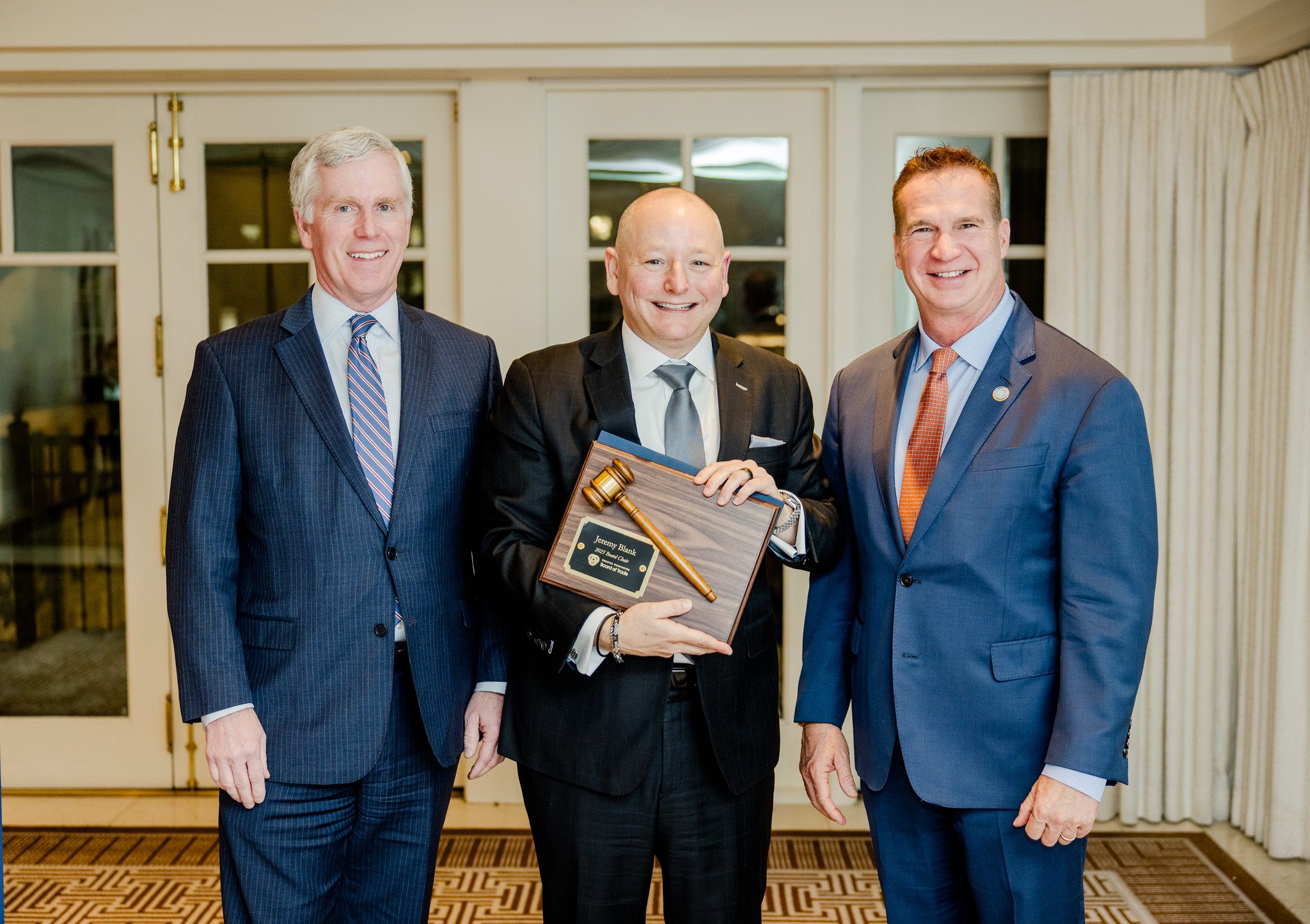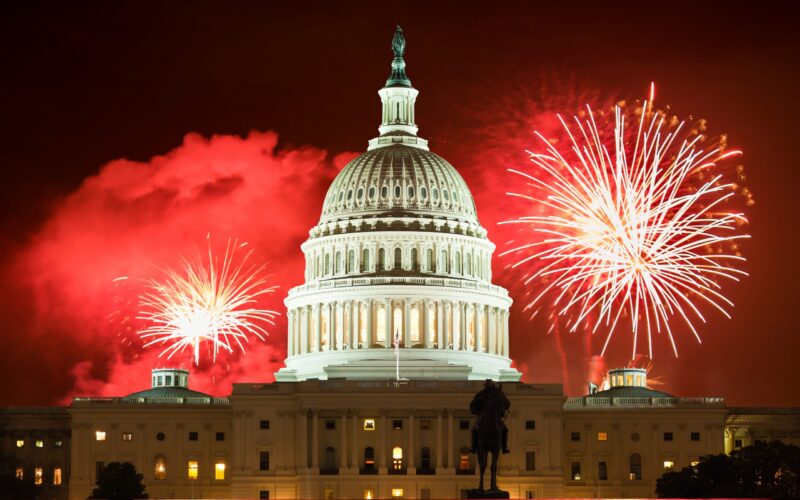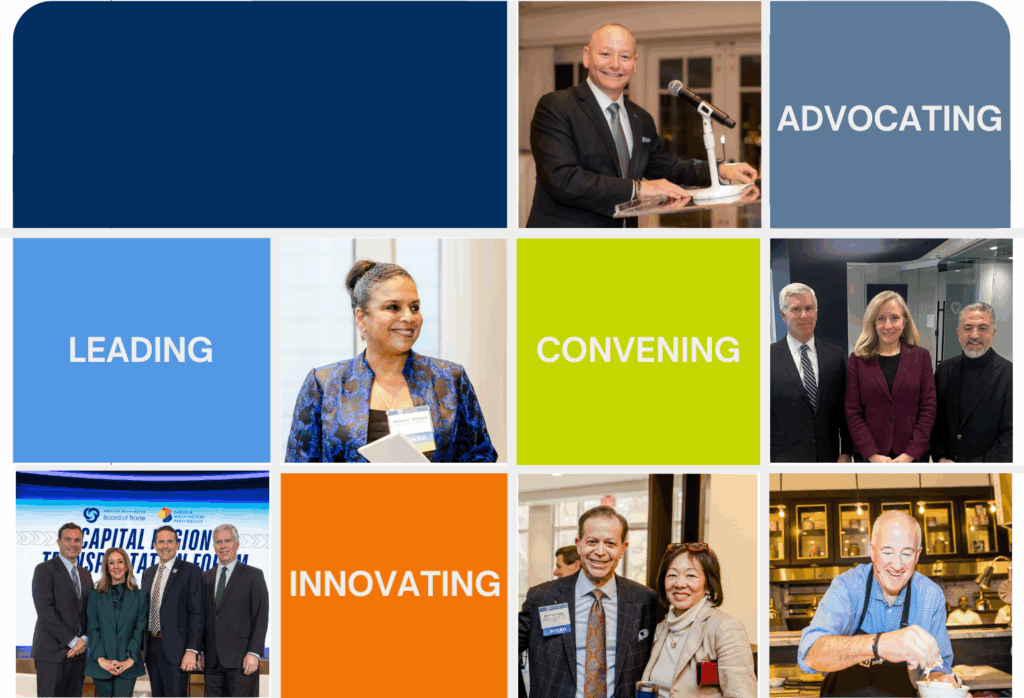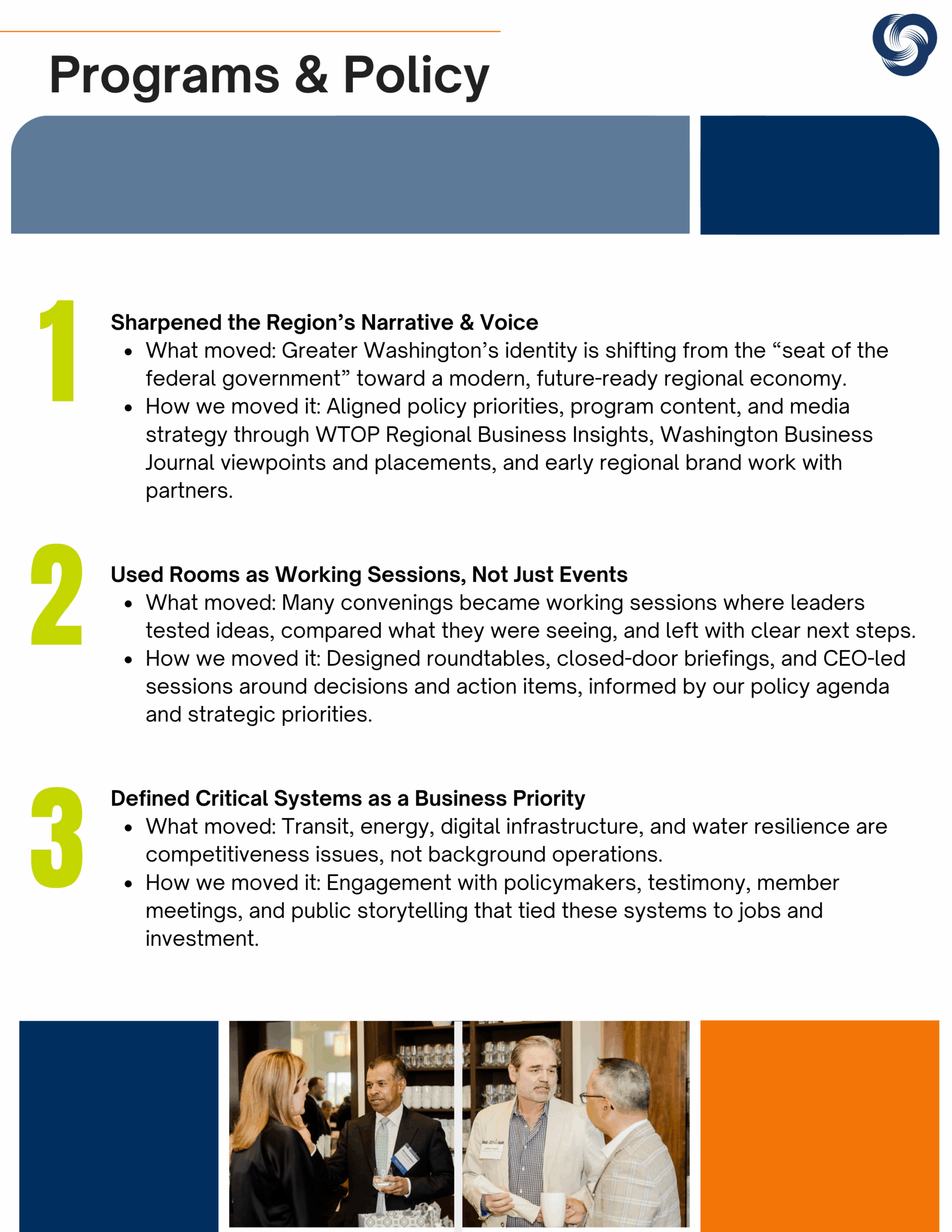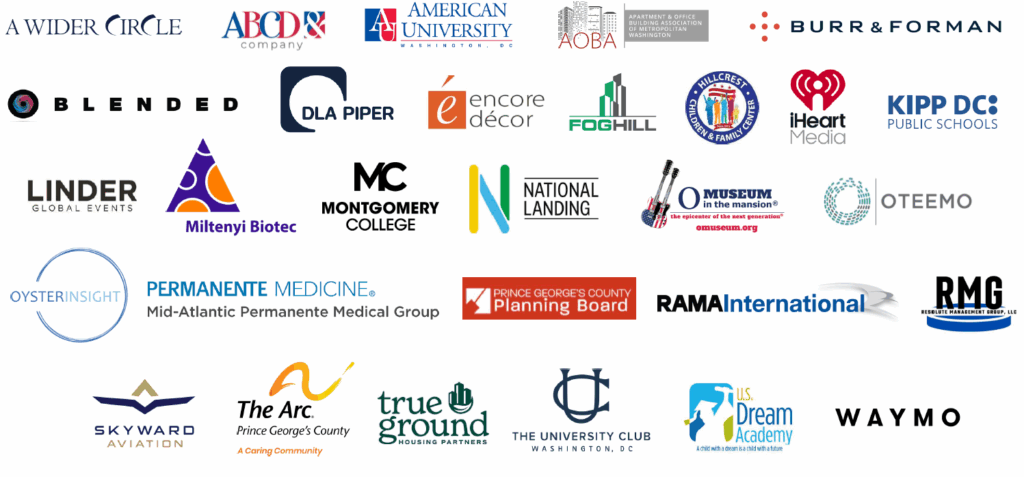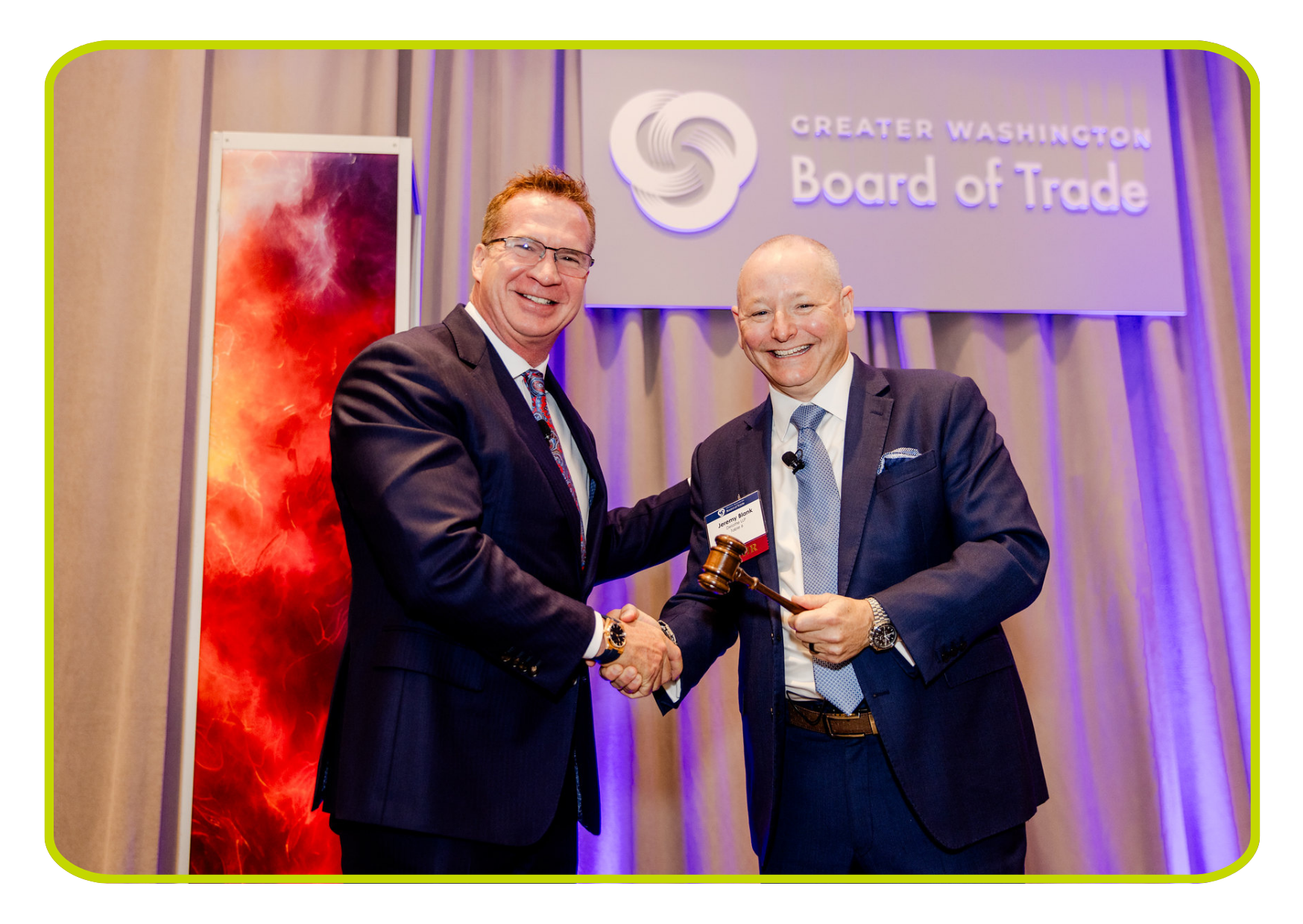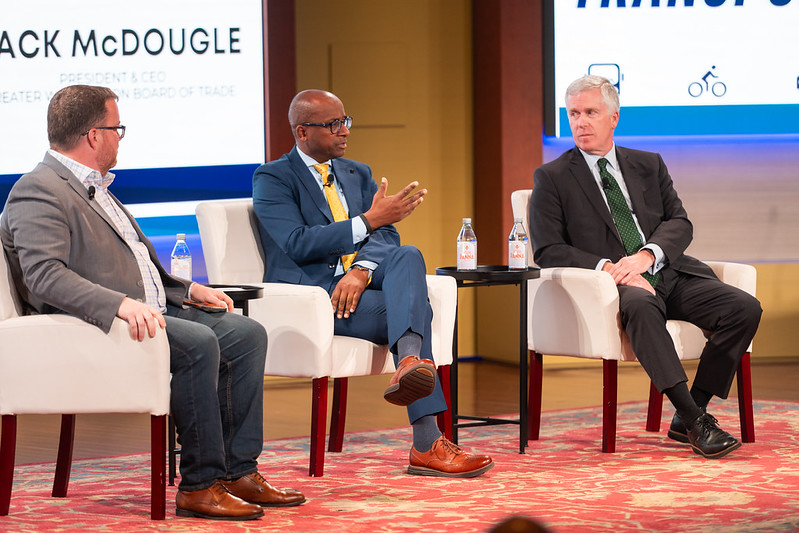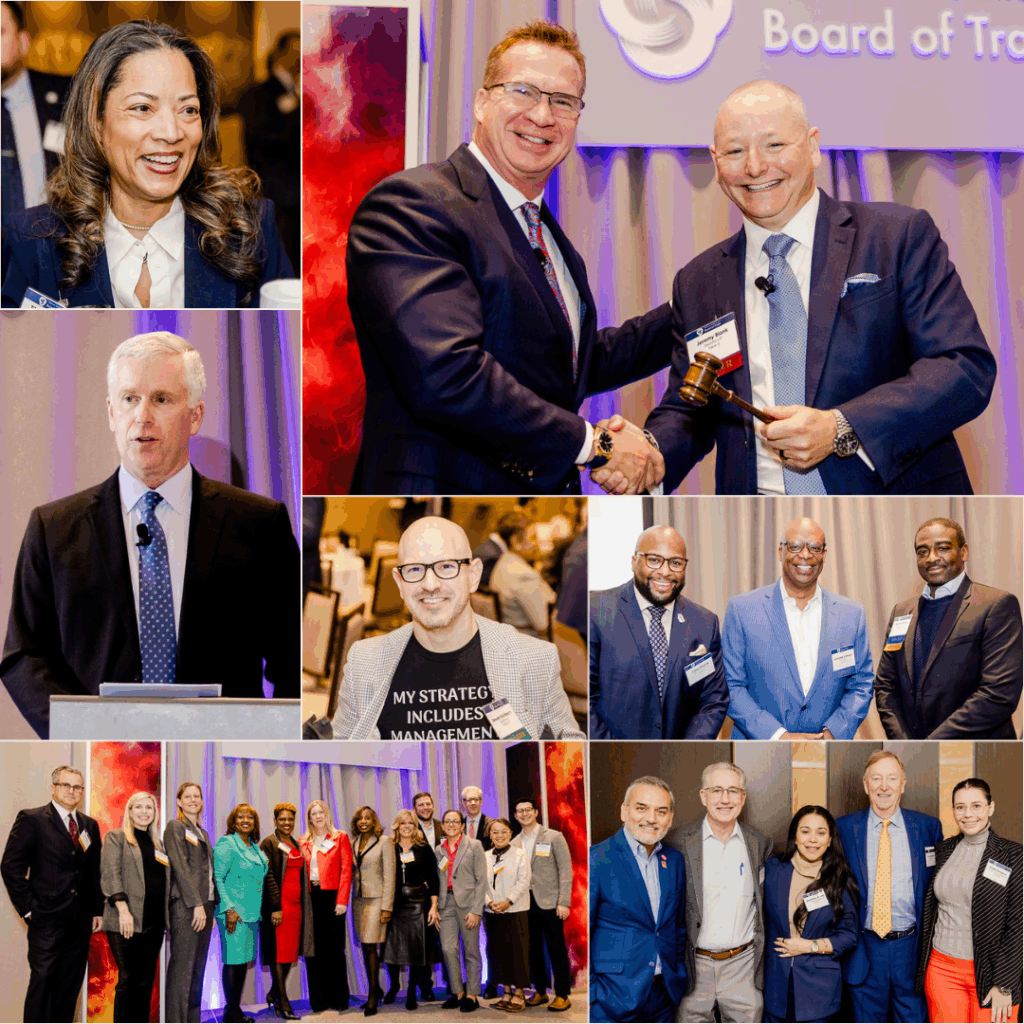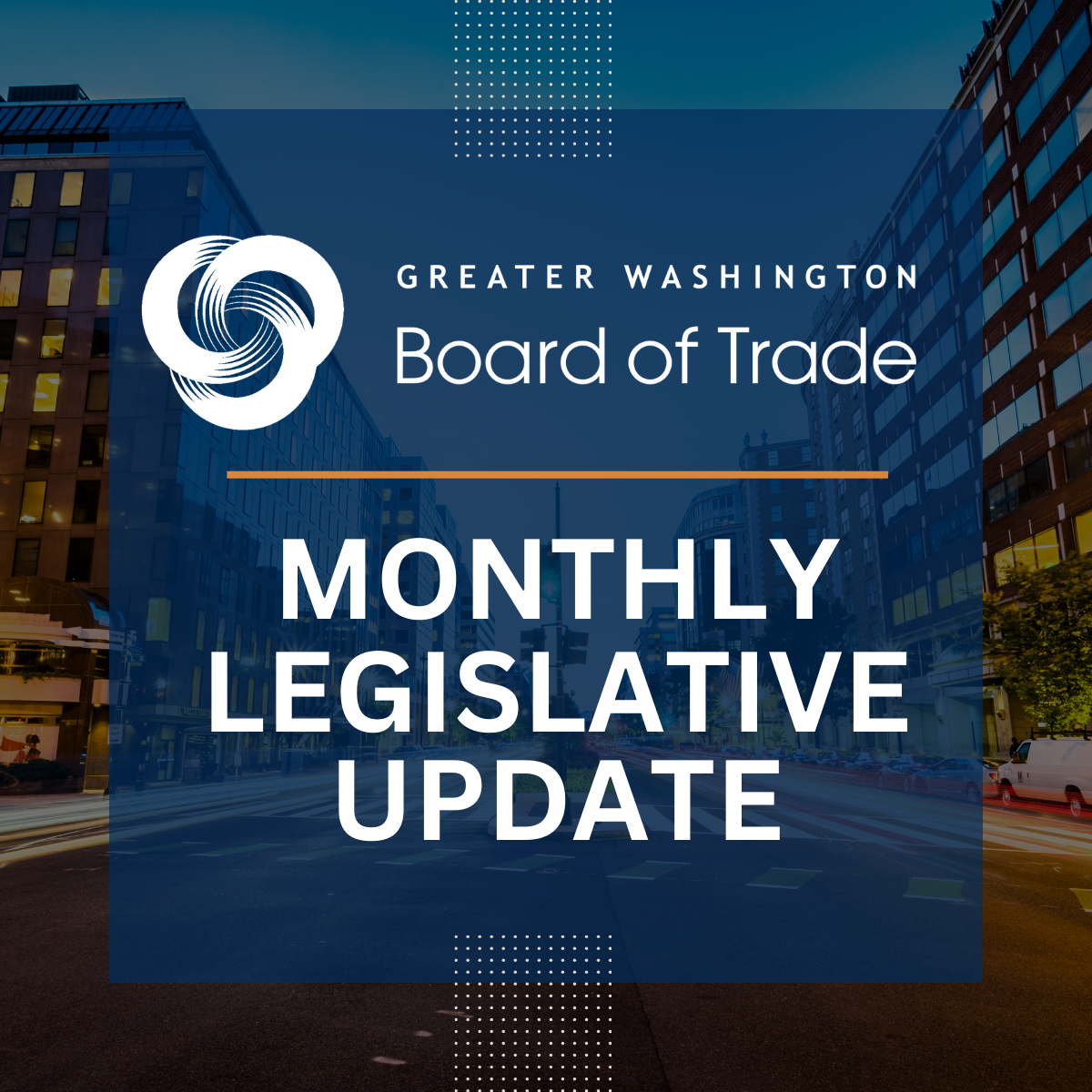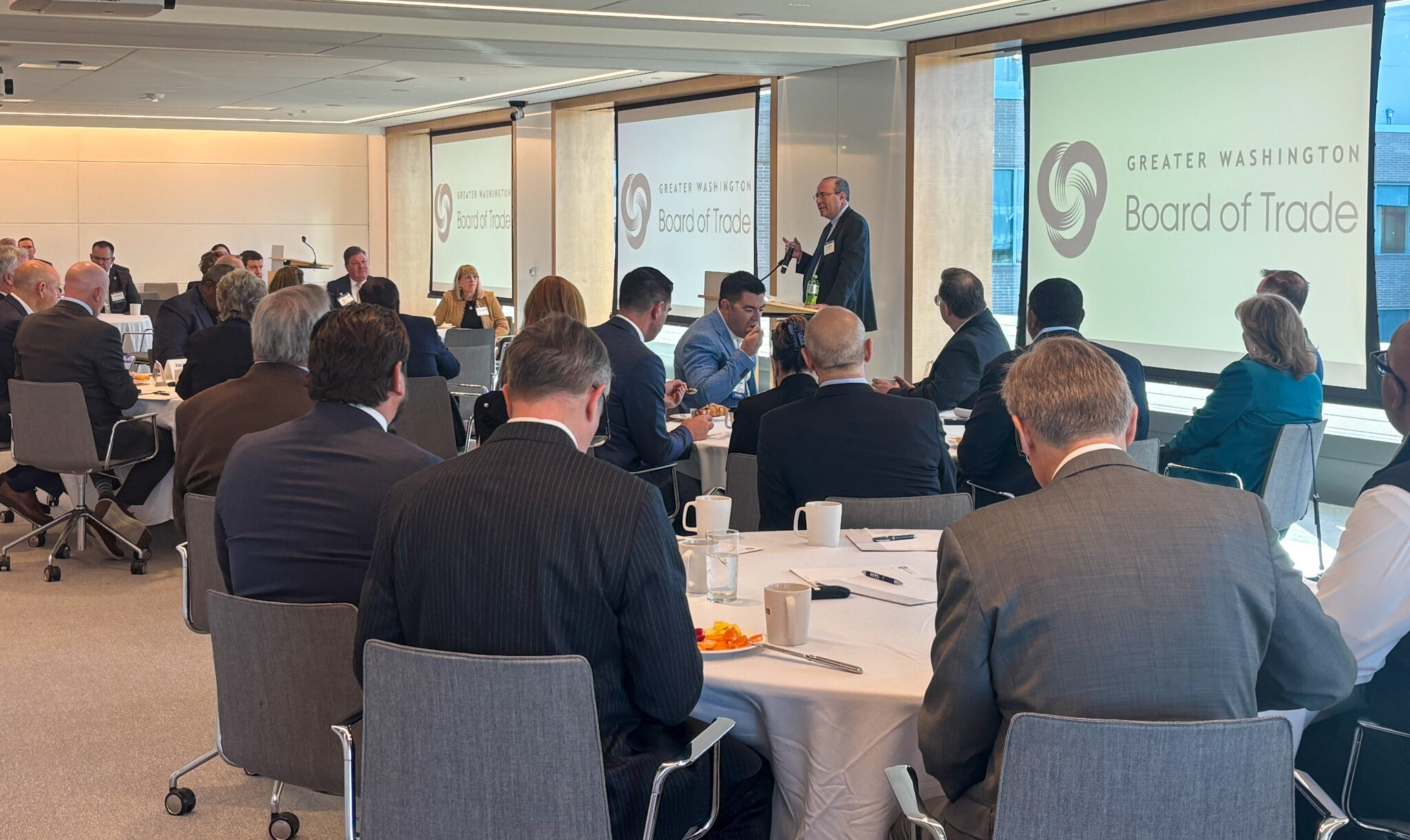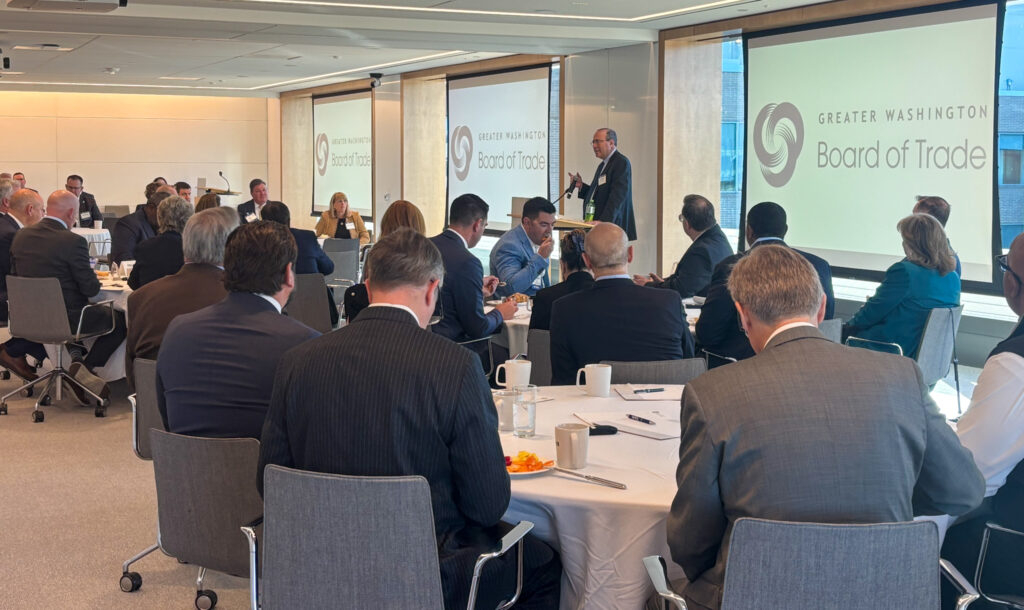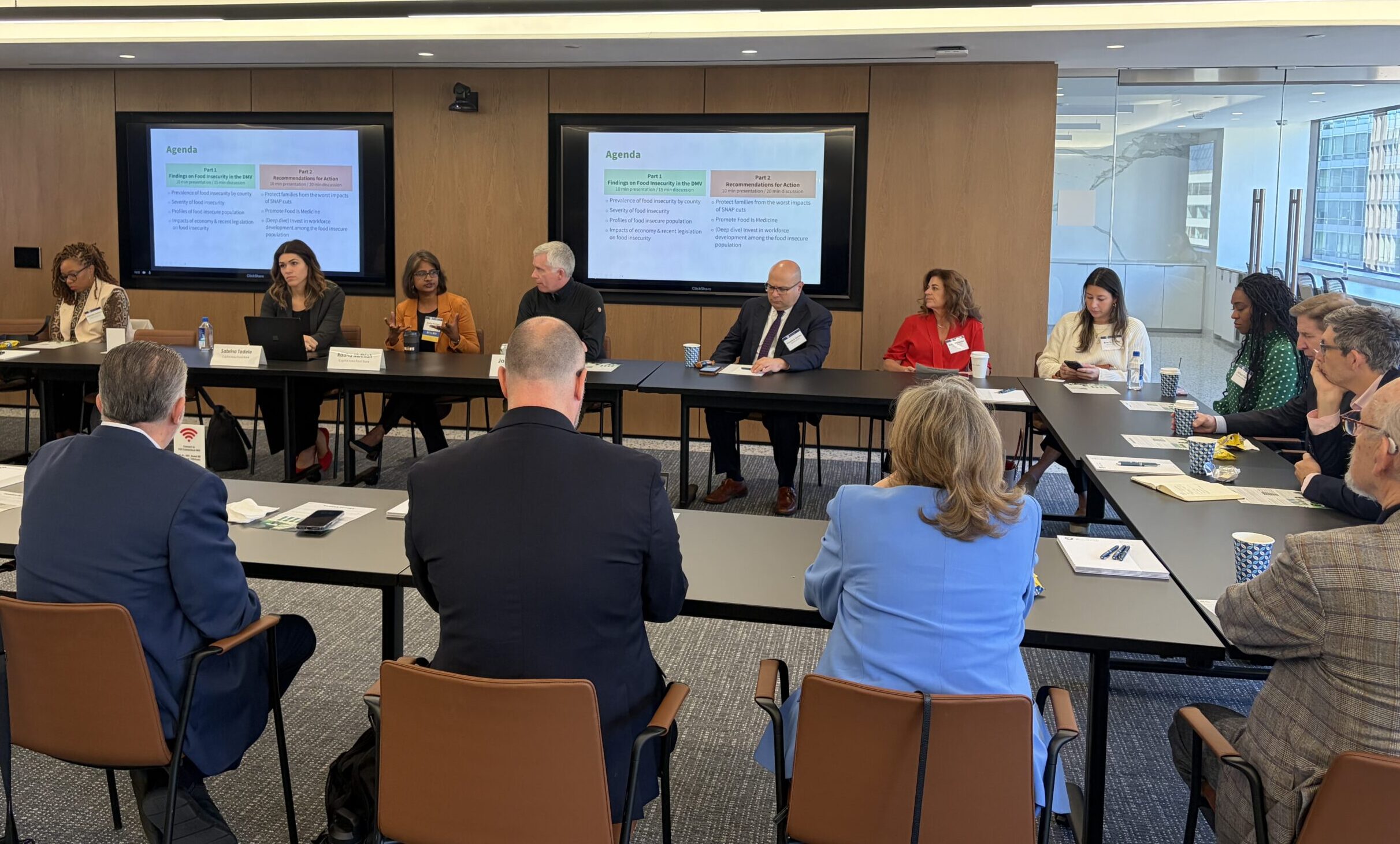
A YEAR OF CONSEQUENTIAL CHANGE
In 2025, the Greater Washington Board of Trade played a pivotal role in guiding our region through a year of consequential change. As federal transformation, technological disruption, and new economic pressures reshaped the landscape, we focused on opportunities, collaboration, and data-driven action.
You’ll see that reflected in our work, charting a more sustainable future for regional transit, standing up shared data and talent tools, and supporting underrepresented entrepreneurs. These are core ingredients of a competitive economy and a stronger story for Greater Washington.
This progress is possible because of you. To our officers, executive committee, board of directors, committee chairs, regional partners, and all our members—thank you. Your leadership, engagement, and commitment power this work and strengthen our community as a whole.
As we look to 2026, the Board of Trade remains focused on helping define a more unified voice; accelerating progress on mobility, energy, and capital; and building the systems and solutions that will define our next chapter.
LEADING REGIONAL PROGRESS

In partnership with our members and community, the Board of Trade advanced a wide range of work across the region this year. The examples below are a snapshot of that progress, not an exhaustive list, illustrating how we are helping to shape regional systems, align decision-makers, and move practical solutions forward for Greater Washington.

STRATEGY IN ACTION
This year, the Board of Trade didn’t just set strategic priorities; we moved them. We were deliberate about aligning our policy work, programming, and public voice so they reinforced one another and pushed the region in the same direction; advancing a shared agenda around transit, talent, innovation, technology, and resilience.

IMPACT THROUGH ENGAGEMENT
Our impact in 2025 shows up in who engaged, how often, and what we did with that engagement. Members used Board of Trade platforms as working rooms; testing ideas, sharpening priorities, and advancing regional solutions. At the same time, our media and digital channels carried that work beyond the room, amplifying the region’s story and giving business a stronger, more consistent voice in the public conversation. The metrics on this page reflect that story of depth, breadth, and growing influence.


- This year, welcomed 29 new member organizations, representing strong momentum heading into 2026.
- Achieved an outstanding 91% retention rate, far surpassing association benchmarks, and had over 90% of member organizations engaged in at least one program, demonstrating deep commitment across our regional network.
- Delivered a robust slate of over 120 programs, events, and gatherings—including the Mid-Winter Dinner, Fall Business Classic, Annual Meeting, and TD Bank Morning Star Series—alongside executive roundtables, policy engagements, themed salons, and professional forums.
- Programming aligned leaders around key regional priorities: economic competitiveness, transit funding, workforce pipelines, public safety, AI transformation, and more.
- Reached 100% of the adjusted 2025 sponsorship forecast, ensuring delivery of high-quality programming amid shifting market and political conditions.
- Positioned the Board of Trade as a trusted voice through op-eds in the Washington Business Journal, major partnerships with WTOP, and media coverage across Axios DC, FOX5, CBS/WUSA9, Washingtonian, and more.
- Website enhancements drove a 46% increase in total users, 74% growth in direct traffic, and stronger inbound engagement from prospective members.
- Established the Board of Trade Foundation governance structure and onboarded trustees.
- Maintained a positive financial trajectory, improved AR, modernized IT systems, and reduced bank fees by 50%.
2025 New Members

2025 Sponsors

LOOKING AHEAD TO 2026
As we carry the momentum of 2025 into the year ahead, the Board of Trade remains focused on strengthening the critical business infrastructure our region depends on and modernizing the regional economy. In 2026, that means putting more weight behind solutioning and strategy in areas such as securing dedicated funding for Metro, addressing energy and technology policy challenges, and advancing the capital, investment, and business conditions that allow employers to innovate, grow, and stay rooted here.
This work is only possible in true partnership with you. Membership is a platform, not a product; its value comes from how actively it is used. Being in the room is step one. We call you to lean in further, by lending expertise and talent, sharing data and examples from your organizations, and investing in the initiatives and discussions that move the needle.
To stay engaged in this consequential moment, we encourage you to connect with our team about where your organization can lead or contribute, participate in the strategy conversations most relevant to your priorities, and explore opportunities to collaborate.
As we look to 2026, we know the path won’t be simple, but it is full of opportunity. And as we have for more than 136 years, the Board of Trade stands ready to lead with purpose, partnership, and optimism for the future of Greater Washington.

Welcome 2026 Board Officers
Board members contribute to the Board of Trade’s success in several ways: they weigh in on strategic decisions; assist with the recruitment, retention, and onboarding process of members; lend resources and make connections to bring projects closer to their goals; and attend and support board meetings and other Board of Trade events throughout the year.


Join Us!
To get involved, connect with our team to explore ways to engage your entire organization. Follow our work—subscribe to our newsletters, connect on X, LinkedIn & YouTube, and visit our newly revitalized website for insights, initiatives, and member highlights. Our events have seen unprecedented demand this year—selling out repeatedly—so be sure to secure your spot early and join these powerful conversations and engagements.
Not yet a member? Please consider joining us! As a member, as partners for change, or both, the Board of Trade is open for business and eager to team with any organization committed to our common goal of a Greater Washington region.


